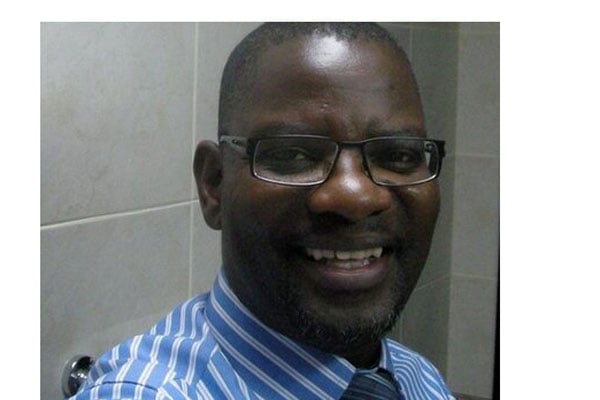The honest conversation we should have this Easter

Author, Musaazi Namiti. PHOTO/FILE
What you need to know:
- I stated clearly that the views I was expressing were not meant to offend anyone. I wanted readers to reflect deeply and soberly on what they believe and, crucially, what they teach our children to believe.
There is perhaps no better day to respond to what columnist Harold Acemah wrote in this newspaper last Sunday than today, which is Easter Sunday.
Religion remains an integral part of people’s lives, but if we continue to fail to question what it says, especially if what it says is demonstrably and patently false; if we continue to prioritise religion over logic, reason and science, we may remain a poor and underdeveloped country and, by extension, continent for decades to come.
We need to learn to teach our children, the future leaders of our country/continent, to think critically and to believe that everything must be open to question even if it is regarded by millions of people as the gospel truth. That is one of the ways our formal education will set us apart from people who did not go to school. Mr Acemah claimed that the article I wrote on March 6 entitled ‘Wars illustrate how God is irrelevant in human affairs’ annoyed, offended and outraged many Christians.
I stated clearly that the views I was expressing were not meant to offend anyone. I wanted readers to reflect deeply and soberly on what they believe and, crucially, what they teach our children to believe.
I will cite several verses from the Bible, including the oft-used verse that Mr Acemah quoted to bolster his argument, to show problems with what we believe — and why we are wrong.
“Fools say to themselves, there is no God. They are all corrupt and they have done terrible things; there is no one who does what is right.” Psalm 14:1 (GNB).
Is it true that people who do not believe in God are fools? Are they corrupt? Have they done terrible things? Let us look at facts closely. Here are the countries with the highest possible ranges of atheists: Sweden (46–85 percent), Vietnam (81 percent), Denmark (43–80 percent), Norway (31–72 percent) and Japan (64–65 percent).
If Psalm 14:1 is true and is the word of God, why is it that Denmark, Norway and Sweden have almost zero corruption, according to Transparency International, yet Uganda, South Sudan and Somalia (all highly religious) are mired in corruption?
Which terrible things have the Danes, Japanese, Norwegians and Swedes done? Denmark and Norway run two relief organisations — the Danish Refugee Council and the Norwegian Refugee Council respectively — that look after millions of people displaced by conflict started by countries where the leaders and the led are religious.
From 2010 to 2013, Uruguay was led by an atheist president named José Mujica. If what Psalm 14:1 says is true, Mr Mujica would have been one of the world’s worst leaders. Yet, as president, Mr Mujica lived exceedingly frugally, driving a 1987 Volkswagen Beetle in a world where non-atheist presidents and prime ministers have miles-long convoys of swanky cars. He rejected a luxury home provided by the state and opted for a farmhouse. There are more demonstrably false verses in the Bible. Matthew 7:7, Matthew 17:20, Matthew 21:21, Mark 11:24, John 14:12-14, Matthew 18:19 and James 5:15-16 clearly tell believers that they can get anything if they pray. Mark 11:24 says: “Therefore I tell you, whatever you ask for in prayer, believe that you have received it, and it will be yours.”
Is this true? If prayer does work, as these verses say, can we pray and get rid of Uganda’s rotten leadership, which we have failed to remove through elections? And can we succeed when we have Romans 13:1?
We should not use religion to kill logic. Happy Easter!
Mr Namiti is a journalist and former Al Jazeera digital editor in charge of the Africa desk
[email protected]
@kazbuk


